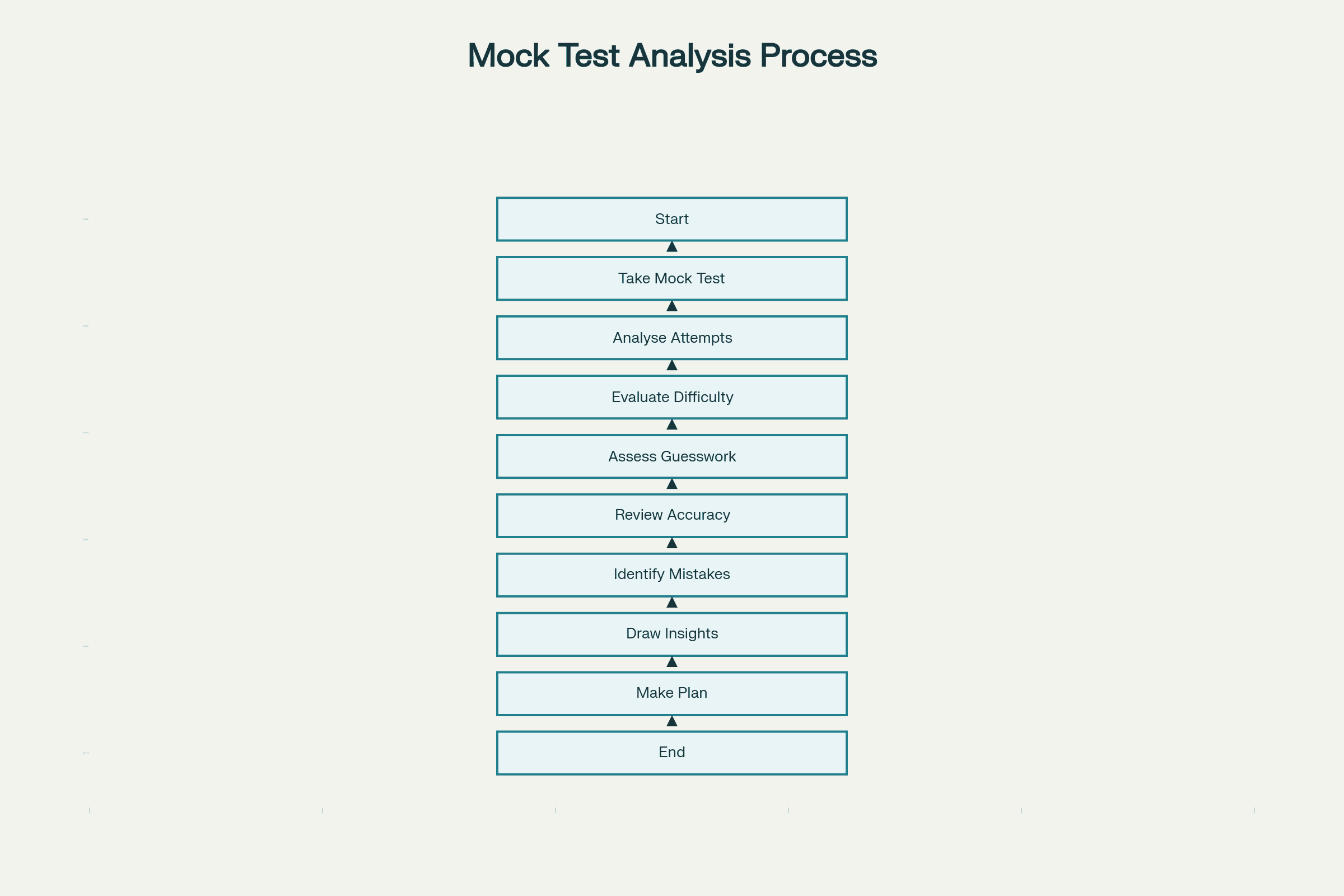How to effectively analyse Prelims Mock Tests for UPSC CSE Prelims pt.2
3 min read
Nov 13, 2025

1. Understand the Importance of Analysis
Mock tests simulate the real exam environment and help you gauge your preparation level. However, just attempting questions doesn’t guarantee improvement. The key lies in reviewing your results critically to identify your strengths, weaknesses, and blind spots so you can make targeted improvements before the final exam.
2. Key Aspects to Analyse in Your Mock Tests
When analysing your mock test attempts, break down your performance across several important categories:
• Total Attempts: Number of questions you answered correctly, incorrectly, and left unattempted.
• Difficulty Level: How you fared in easy, medium, and hard questions.
• Guesswork: Evaluate the nature of your guesses:
• Blind guesses (random)
• Guesses made when 100% sure about some options
• Guesses made when unsure among 2 or 3 options
• Accuracy at Topic and Subject Levels: Check your accuracy within individual topics (for subject tests) and overall subjects (for full-length tests).
• Types of Mistakes: Differentiate between factual errors and conceptual mistakes, highlighting knowledge gaps.
3. Drawing Insights from Your Analysis
Use the above framework to extract meaningful insights:
• Are Your Attempts in the Ideal Range?
Aim for about 75-90 attempts per mock. If you attempt fewer, it might indicate insufficient subject coverage; if more, it may affect accuracy.
• Is Your Accuracy Above 75%?
If not, review your guessing strategy. Blind guesses lower accuracy, while intelligent guesswork can improve it.
• Are You Missing Easy or Medium Questions?
Consistently missing easier questions reveals weak areas that need focused revision.
• Are Factual or Conceptual Questions Causing Errors?
If factual questions are incorrect, increase revision frequency. For conceptual errors, revisit your study materials to strengthen understanding.
• Did You Panic or Double Guess?
Frequent panic or second-guessing during mocks indicates the need for more practice to build confidence.
4. Use Your Analysis to Improve
Armed with a deep understanding of your mock test performance, you can now design a smarter preparation strategy. Focus on weak topics, improve your guesswork by practicing intelligently, and incorporate regular revision to minimize factual errors. Practicing with mock tests plus honest self-assessment will make your preparation more robust and increase your chances of success in the prelims.